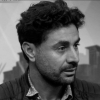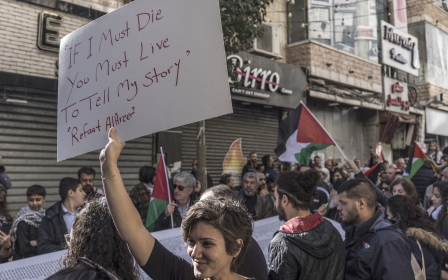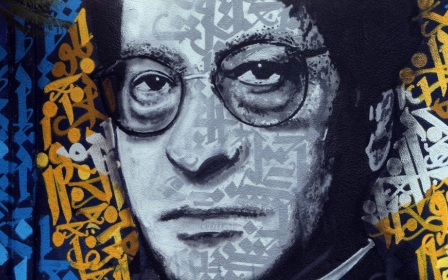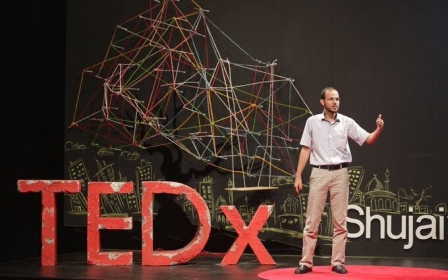My cousin's poems were the heartbeat of Palestine. Israel killed him but his words live on
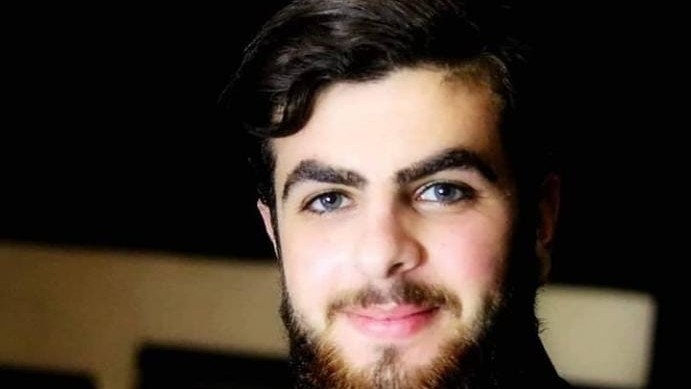
My heart has been shattered by the unbearable grief of losing my cousin, Rashad Abu Sakhilah.
Israeli forces killed him this month in cold blood, ruthlessly snuffing out a brilliant light in their merciless pursuit to silence the voice of Palestine. This voice is represented by those who speak of identity, culture, beauty, truth, and the yearning for peace in a land where such desires are often met with violence.
Rashad was more than just a cousin to me. He was a brilliant poet, a talented actor, and a beacon of hope in a world that often seems devoid of it. His life was tragically cut short, but his light will never be extinguished.
Rashad, who died at the age of 23, was the youngest poet in Palestine to publish a book of poetry, an extraordinary accomplishment. His compilation, titled Letters of the Earth, captured the essence of our homeland’s struggles and dreams.
His words resonated deeply with all who read them, echoing the pain, love and resilience of a people who have endured so much, yet continue to hope for a better future.
New MEE newsletter: Jerusalem Dispatch
Sign up to get the latest insights and analysis on Israel-Palestine, alongside Turkey Unpacked and other MEE newsletters
His poems were not just words on a page; they were the heartbeat of a nation that has been fighting for survival for decades. Rashad gave voice to the collective experiences of the Palestinian people, turning our shared pain into something beautiful that could guide us in the darkest of times.
Here is an excerpt of one of Rashad's poems from his book Letters of the earth:
O writer of history, record my story
For I am buried within my sighs
O writer of history, a blooming melody
Yet the flowers melt away in my sorrows
A torrent of tyranny drowns my homeland
Machines march over my remains
Alone here, bullets betrayed my rifles
Even the echo does not return my cries
Healing wounds
Rashad was not only a gifted poet; he was also a talented actor, and his onscreen presence was magnetic. He starred in the popular local television series Fist of the Free, portraying a Hamas commander - a role that some speculate might have cost him his life, following an Israeli air strike this month in Jabalia, Gaza.
Rashad believed that art had the power to bridge divides, heal wounds and bring people together in a way that politics and conflict never could.
Follow Middle East Eye's live coverage of the Israel-Palestine war
On social media, he spoke out against the senselessness of war. He yearned for peace - not just for Palestinians, but for all peoples facing oppression and caught in endless cycles of violence.
He had no political or military affiliations, stating on Facebook: “I respect all parties and I don’t belong to any of them.” Still, Israel targeted him. If it was because of his acting role, this would be totally unjustified; Rashad’s art was not an endorsement of any ideology, but rather a reflection of life - a way to convey the complex realities of our existence.
Rashad taught us that even in the face of unimaginable adversity, we must continue to create, speak out and hold onto hope
He was a storyteller, an artist, and most importantly, a human being who believed in the power of words to change the world.
Rashad was my father’s favourite nephew, and the bond they shared was truly special. My dad spoke of him with great admiration. Rashad had a way of making everyone he met feel seen and heard. Conversations with him were filled with depth and insight, marked by his infectious enthusiasm for life.
When I was in Gaza in 2021, I had the privilege of attending the launch of Rashad’s first book of poetry. It was an evening that I will never forget. The room was packed with people eager to hear his words; to feel the emotions they stirred.
He was not even 20 at the time, yet he managed to captivate the audience, reading his poems with such passion and conviction. I was overwhelmed with pride.
Resilience and spirit
Rashad represented the best of us. He personified the future we all long for - one filled with creativity, culture and a deep connection to our roots.
Today, that future feels distant and uncertain. How can we move on from this loss? How can we get over the senseless killing of a young man who had so much to offer? My family remains in mourning, constantly sharing his poems and memories on social media in an effort to keep his spirit alive.
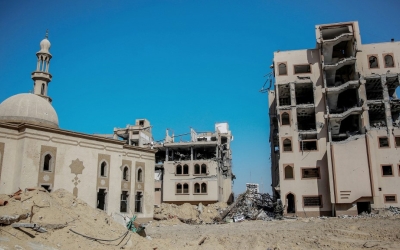
Rashad was killed for his talent and inspiration - for daring to be a voice of hope in a world that so desperately needs it. Israel is not just targeting individuals; it is trying to break us as a people, to erase Palestinian culture, identity and existence.
These efforts at erasure have been ongoing for 76 years, since the Nakba. They have targeted our leaders, intellectuals and artists. Indeed, Rashad’s story is not unique: Israel has killed thousands of Palestinians like him, people who dared to dream of a better world, and to use their talents to inspire others.
I don’t know what to say or do in the face of such grief. Rashad shone so brightly. I will not let his memory fade.
Rashad embodied the resilience and spirit of a people who refuse to be broken. His death is a reminder not just of the ongoing struggles we face, but also of the strength we possess. We are not just victims; we are survivors, and we will continue to fight for our right to exist, to create, and to live in peace.
Though Israel might have silenced Rashad’s physical voice, it can never silence his message and legacy. Rashad taught us that even in the face of unimaginable adversity, we must continue to create, speak out and hold onto hope. He showed us that our identity, culture and dreams are worth fighting for - and that is something that can never be taken away from us.
Rest in power, Rashad. You might be gone, but you are not forgotten.
The views expressed in this article belong to the author and do not necessarily reflect the editorial policy of Middle East Eye.
Middle East Eye delivers independent and unrivalled coverage and analysis of the Middle East, North Africa and beyond. To learn more about republishing this content and the associated fees, please fill out this form. More about MEE can be found here.


